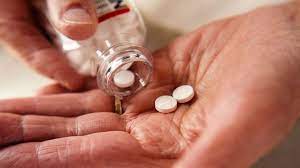Medication management is a critical aspect of healthcare that involves the safe, effective, and appropriate use of medications to optimize patient outcomes. It encompasses a range of processes, including prescribing, dispensing, administering, and monitoring medications, as well as educating patients about their medications. Effective medication management requires collaboration among healthcare providers, pharmacists, and patients to ensure that medications are used correctly and safely.
One key component of medication management is medication reconciliation, where healthcare providers compare the medications a patient is currently taking with those that have been prescribed or recommended. This process helps to identify discrepancies, such as duplicate medications or potential drug interactions, which can lead to adverse effects or treatment inefficacy if not addressed. By reconciling medications, healthcare providers can ensure that patients receive the appropriate medications at the correct doses and frequencies.
Another crucial aspect of medication management is patient education. Healthcare providers must communicate clearly with patients about their medications, including their purpose, dosage instructions, potential side effects, and precautions. Patients need to understand how to take their medications correctly and what to do if they experience any adverse effects. Pharmacists also play a vital role in medication management by providing counseling to patients on how to use their medications safely and effectively.
Furthermore, medication management involves ongoing monitoring and assessment of patients’ medication regimens to ensure they remain appropriate over time. This includes assessing the effectiveness of medications, monitoring for adverse effects or drug interactions, and adjusting medication doses or therapies as needed. Healthcare providers must also stay informed about new medications and evidence-based practices to provide patients with the best possible care.
In summary, medication management is essential for optimizing patient outcomes and ensuring the safe and effective use of medications. By reconciling medications, educating patients, and monitoring their medication regimens, healthcare providers can help patients achieve better health outcomes and avoid potential medication-related problems. Effective medication management requires collaboration among healthcare providers, pharmacists, and patients to ensure that medications are used safely and appropriately.





